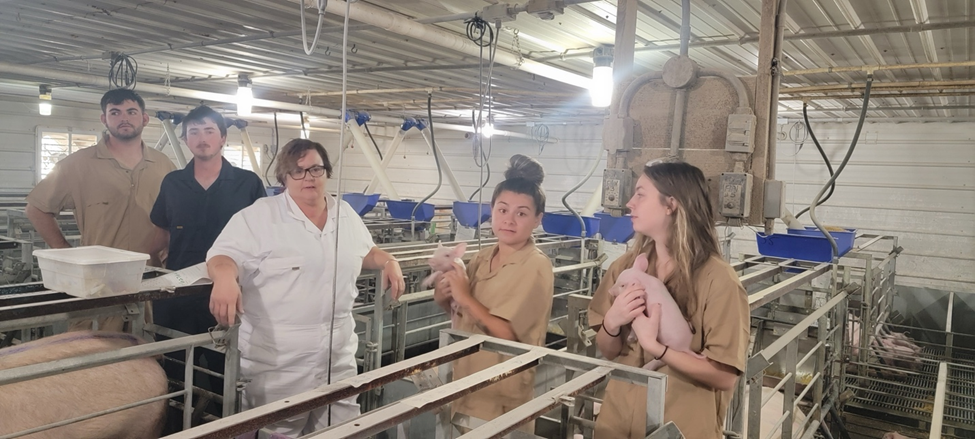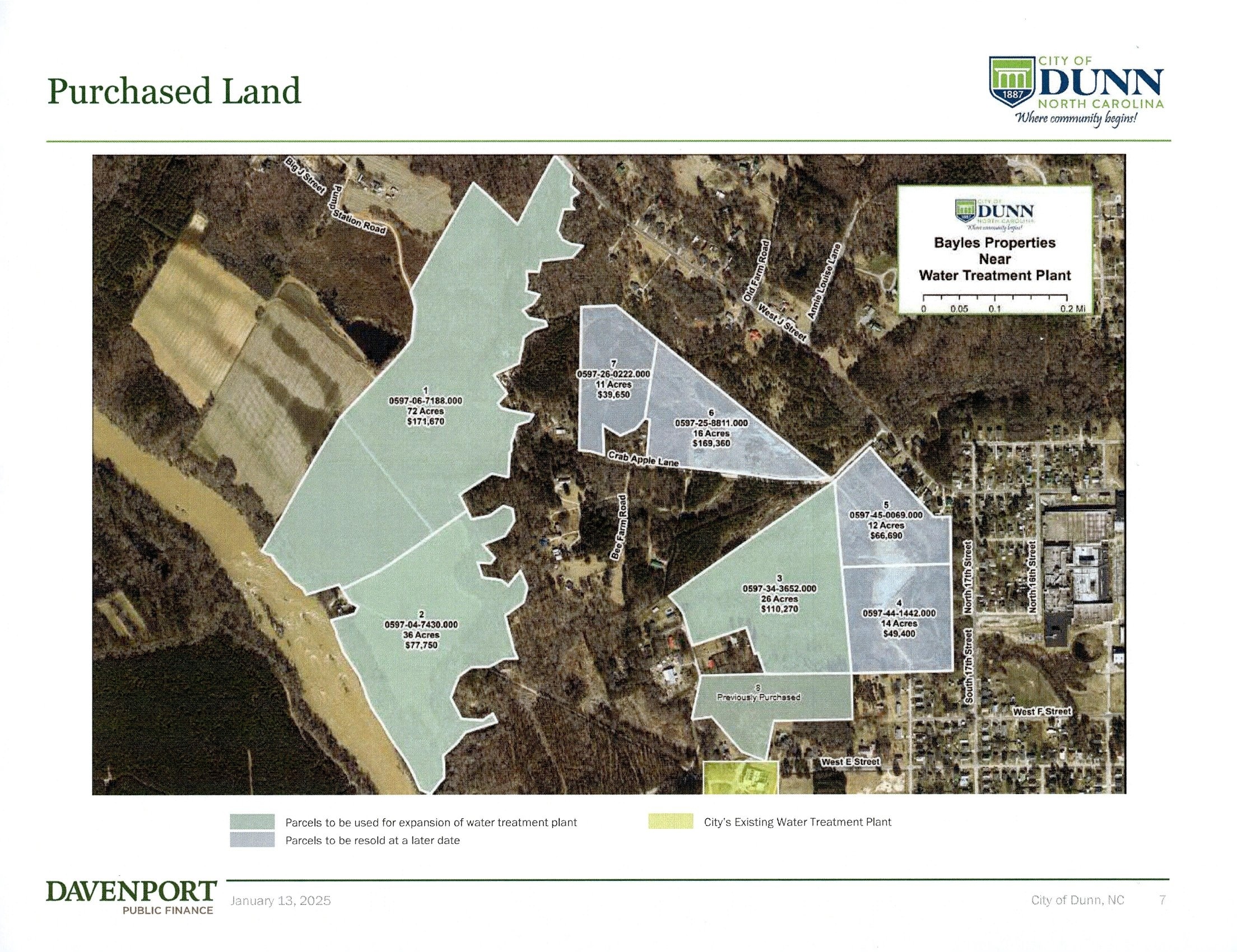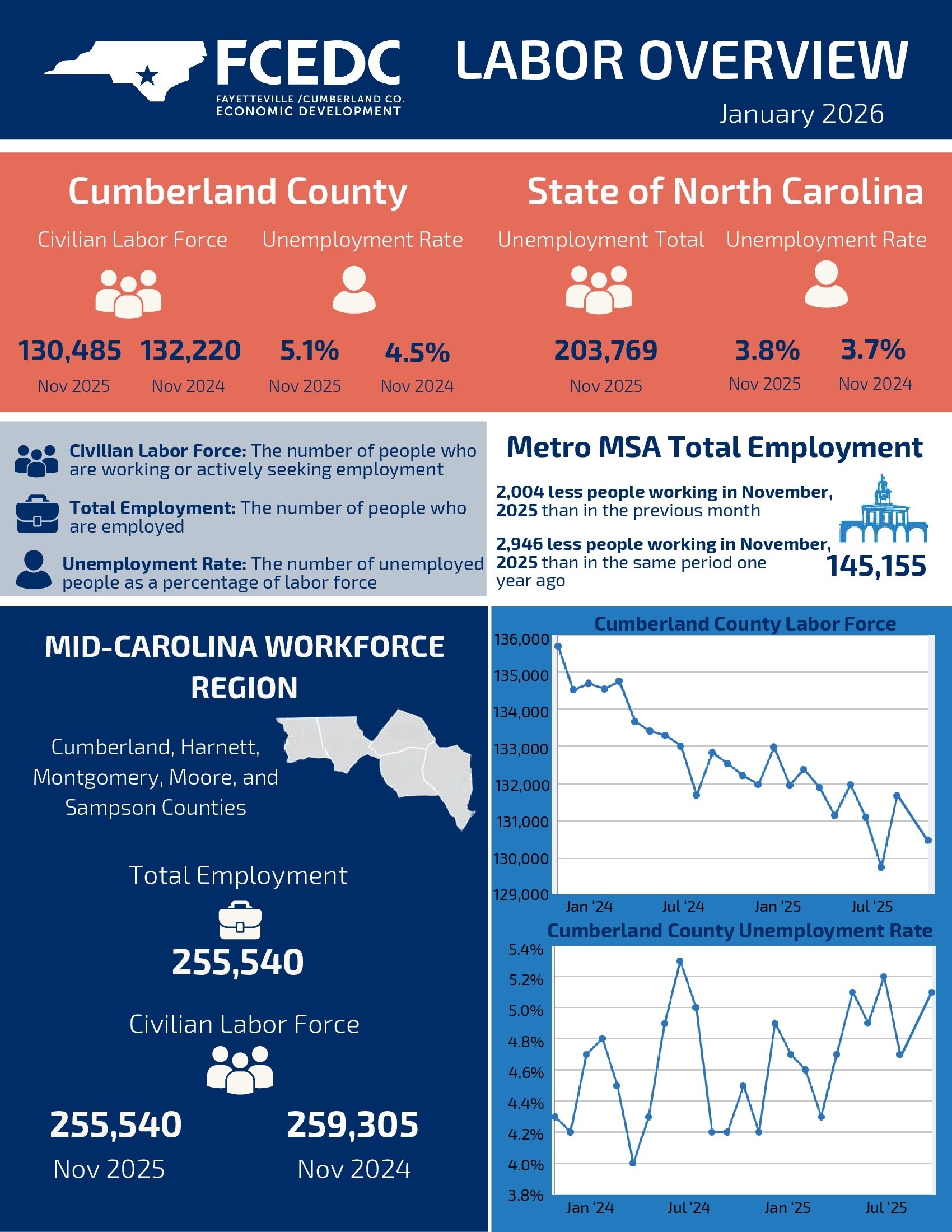
In Sampson Community College’s (SCC) Agribusiness Technology & Applied Animal Science programs, hands-on experiences like field trips and lab activities are shaping the next generation of agricultural professionals. Through immersive learning opportunities, students gain real-world insights, connect with potential employers and prepare for successful careers in the ever-evolving agricultural industry.
“Many of our students learn best by ‘seeing or doing,’” said Chet Bass, Department Chair of Agricultural Technologies at SCC, in a press release. “Field trips to local agri-businesses expose them to real-world applications of classroom concepts while also introducing them to potential employers who may offer work opportunities during school or after graduation.”
Recent field trips have included visits to a sow farm, the MFV digester and the Phinite facility—each providing a unique perspective on cutting-edge technologies in agriculture. “The students found the sow farm trip especially educational and a one-of-a-kind experience,” Bass shared in a press release. “These excursions not only deepen their understanding of key concepts but also prepare them to step confidently into the workforce.”
The success of the programs is evident in its alumni. One graduate has returned as an adjunct instructor for SCC’s Agriculture Department, while others currently thrive in local agri-business roles or transferred to a four-year institution to continue their agricultural education. These accomplishments underscore the program’s commitment to preparing students for real-world success.
To ensure the curriculum remains relevant, SCC instructors continually integrate current industry trends and emerging technologies into their teaching. Strong partnerships with local agri-businesses enhance the program further by offering internships, work-based learning opportunities and invaluable support for field trip initiatives.
“At SCC, we believe hands-on learning bridges the gap between education and employment,” remarked Bass in a press release. “Our partnerships with local businesses are vital to ensuring our students graduate prepared for meaningful careers in agriculture.”
With certificate, diploma and degree options, SCC’s Agribusiness Technology program prepares individuals to manage agricultural businesses and agriculturally related operations within diversified corporations. Graduates should qualify for a variety of jobs in agricultural businesses such as equipment, feed and agricultural supply sales; store management; farm operations; wholesale and retail produce management; nursery operations; and environmental and agricultural education.
Similarly, the Applied Animal Science program is designed to prepare students for careers in the production, processing and distribution of livestock, swine and poultry and their products. Graduates should qualify for entry-level jobs as herd or flock managers, field service persons, feed salespersons, equipment salespersons, feed mill workers, buyers of poultry and livestock, owners/operators, farm managers, department supervisors, field service representatives and waste management technicians.
For more information about agriculture programs at SCC visit, www.sampsoncc.edu/programs or contact Chet Bass at cbass@sampsoncc.edu.

Owners Dana and Tracy Horne planted their vineyard in 2009. In 2019, they introduced their u-pick vineyard, and visitors loved the addition. They’ve also added a 4,608 sq ft. venue available to rent for events. Photo by Emily Grace Photography.Twiste

Mayor Elmore saw the necessity for this land acquisition when he first took office six years ago. The land owner recently came around to negotiations on the condition the sale was for all of his parcels. This is more land than the City of Dunn curren

While the weather outside is cold, the local job market is hot. Fayetteville employers continue to bring on additional talent across a variety of industries.Quality employment opportunities are available at companies across Fayetteville and Cumberlan